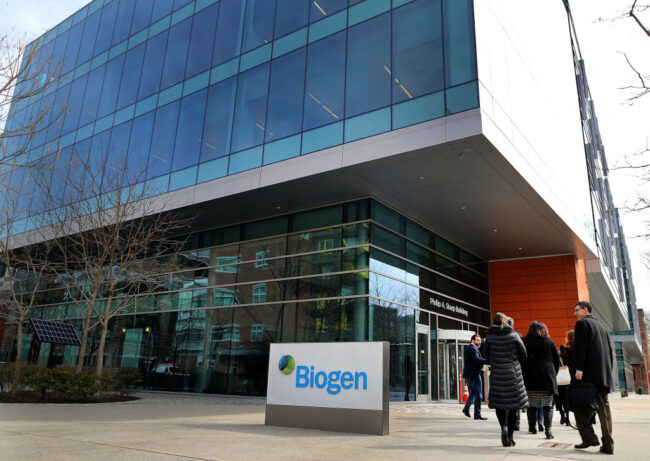
The struggles for Biogen’s Alzheimer’s disease drug extend beyond the U.S. The drugmaker’s efforts to get the European Medicines Agency to reconsider its opinion of Aduhelm has been unsuccessful, leading the company to withdraw its application seeking European marketing authorization.
Biogen said Friday that European regulators indicated that the data the company provided would not be sufficient to support a positive opinion for the drug. The position is largely unchanged from last December, when the EMA’s Committee for Medicinal Products for Human Use recommended refusal of Biogen’s application for the drug, whose chemical name is aducanumab. The committee cited the absence of a link between amyloid reduction and patient improvement, along with the brain swelling and bleeding risks associated with the drug. The committee concluded that the agency’s opinion was that “the benefits of Aduhelm did not outweigh its risks and it recommended refusing marketing authorisation.” Biogen had been seeking a re-examination of that opinion.
“We are thankful to the patients, caregivers and physicians that supported the re-examination process as part of the EMA review,” Priya Singhal, Biogen’s head of global safety & regulatory sciences and interim head of research & development said in a prepared statement. “We stand by the safety and efficacy of aducanumab, and we look forward to upcoming data readouts to continue to provide important information on the science of this new class of compound.”
Aduhelm has not gained much market traction since it won accelerated FDA approval last June. As the first new Alzheimer’s drug approved in nearly 20 years, Aduhelm was projected to become a blockbuster seller. But Biogen’s financial statements show that the drug tallied just $3 million in 2021 sales. Late last year, Biogen announced it would slash Aduhelm’s $56,000 annual price in half in an effort to boost sales.
The biggest hurdle to commercialization was placed in front of the drug earlier this month. The Centers for Medicare and Medicaid Services said it would only cover Aduhelm for beneficiaries who are participating in a clinical trial. That decision will likely affect broader reimbursement of the drug. Payers look to CMS coverage to inform their own reimbursement decisions.

A Deep-dive Into Specialty Pharma
A specialty drug is a class of prescription medications used to treat complex, chronic or rare medical conditions. Although this classification was originally intended to define the treatment of rare, also termed “orphan” diseases, affecting fewer than 200,000 people in the US, more recently, specialty drugs have emerged as the cornerstone of treatment for chronic and complex diseases such as cancer, autoimmune conditions, diabetes, hepatitis C, and HIV/AIDS.
In a statement issued after the CMS coverage determination, Biogen called on the agency to reconsider its decision when more data from this class of drugs becomes available. Lecanemab, an anti-amyloid drug in development by Biogen’s partner Eisai. The Japanese pharmaceutical company issued its own statement saying that it expects that the design of its Phase 3 study could meet the evidence requirements that CMS has set. Eisai expects to report data from that clinical trial this fall.
Photo: John Tlumacki/The Boston Globe, via Getty Images













